R&I Grant Recipients
2020-2021 Academic Year
Pathways to Reading Instruction in the Beginning and Intermediate Arabic Language Classroom - Cognitive and Affective Outcomes from a Year-Long Program
This research project will explore the developing of reading skills in Arabic at the beginning and intermediate level under two different conditions – intensive and extensive. The goal of the project will be to assess the effect each of the two conditions has on the development of reading skills (decoding, general comprehension, comprehension of detail), as well as to document the effect each approach has on learner affective profiles (learner attitudes towards reading, reading anxiety, language learning motivation).
- Gergana Atanassova, Senior Lecturer, Near Eastern Languages and Cultures
Student affairs practitioner efficacy in applying critical perspectives of leadership to practice
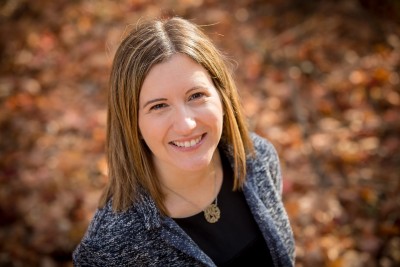
- Amy Barnes, Clinical Associate Professor, Educational Studies
- Adrian Bitton, PhD Student, Educational Studies
The Impact of Coaching Reports on Self-Directed Learning in an Undergraduate Pharmaceutical Science Laboratory Course

- Nicholas Denton, Lecturer, College of Pharmacy
- Larry Hurtubise, Director, Office of Educational Innovation and Scholarship, College of Pharmacy
Becoming Antiracist Educators in Partisan Pandemic Times

- Caroline T Clark, Professor, Teaching and Learning
Identifying Barriers to Participation and Engagement in Synchronous and Asynchronous Learning Environmentsin General Chemistry.
Effective online learning may be described as a technology-enabled learning community in which students interact with the instructor, and each other, to share ideas and construct their understanding collaboratively. In both synchronous and asynchronous learning environments students may perceive barriers that limit their participation and engagement. Technological and access-related barriers may exist, as well as social barriers if students have a low sense of belonging and low self-efficacy.T raditional at-risk students in general chemistry, such as underrepresented minorities, may perceive multiple barriers. To improve student learning it is important better understand barriers to participation and engagement for struggling students. This is especially important in gateway courses, like general chemistry.
- Ted Clark, Associate Professor, Chemistry and Biochemistry
Making Art from Many Voices:Active Story Creation and Performance as a Means to Enhance Understanding
We want to enhance the curriculum of two popular Introductory General Education courses - Theatre 2100 (Introduction to the Theatre) and Art Education 2520 (Digital Art Making) – by expanding opportunities for students to create their own short performance pieces or performance-supported digital art. To do this in a remote environment we need to integrate with our existing lighting, sound, and projection technologies, and spaces a camera system that will allow work to be created by students while off site and shared with the class, the university, and the broader community. This same arrangement will allow visual arts students to tell their own stories through art, explore performative art more broadly, and it will allow our arts programs’ existing collaboration with the Mansfield Campus Office of Diversity and Inclusion to expand into more programming areas.
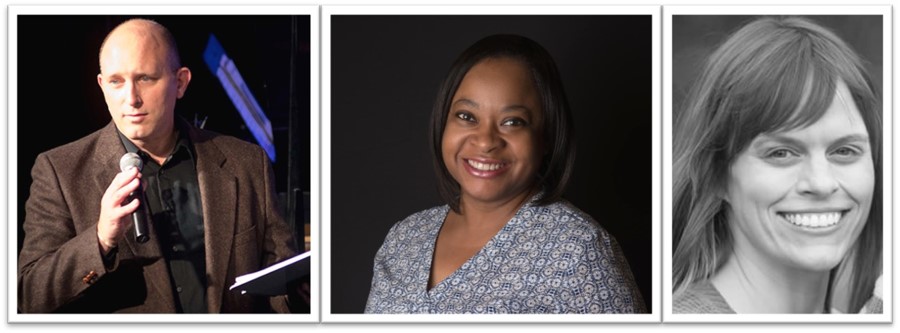
- Joseph Fahey, Associate Professor, Director, Mansfield Campus Theater Program
- Tiffany Mitchell, Coordinator of Diversity and Inclusion, Mansfield Campus
- Kate Shannon, Associate Professor of Art, Mansfield Campus
Do University Instructor Discussion Questions Impact Pre-and Inservice Teachers’ Racial Bias in an Online Educational Assessment Course?
The purpose of this study is to examine impacts of instructor discussion prompts on university students’ racial biases before, during and after an online course. This is a mixed methods pilot study in which a convenience sample of student participants will be randomly assigned to one of two instructional groups. Both groups will receive the same course content, but given different discussion prompts. A combination of racial attitudes survey data combined with demographic information (quantitative data) and discussion board posting data (qualitative data) will be collected, anonymized and analyzed.
- Yvonne Goddard, Associate Professor, Educational Studies
Evaluating and Enhancing the Global Capstone Course

- Michael Hagenberger, Associate Dean for Facilities and Capital Planning, Professor of Practice, Department of Civil, Environmental and Geodetic Engineering, College of Engineering
- Patrick Sours, Senior Lecturer, Department of Civil, Environmental and Geodetic Engineering, College of Engineering, Department of Food, Agricultural and Biological Engineering, College of Food, Agricultural, and Environmental Sciences
Developing eTools for Integrating Civil Engineering Subjects in Capstone Design Class
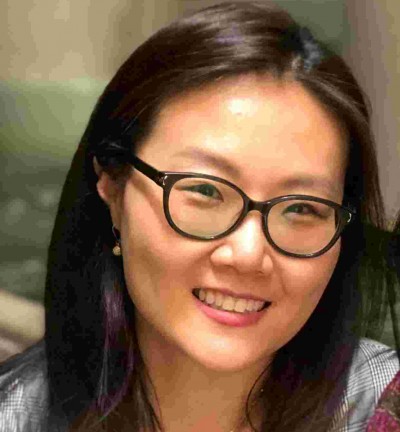
- Jieun Hur, Assistant Professor of Practice, Department of Civil, Environmental and Geodetic Engineering, College of Engineering
Effects of using anatomy multimedia dissection videos to enhance students’ learning and experience
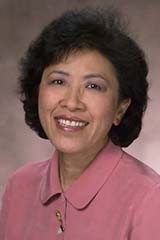
The goals of this proposed project are to develop four additional fully narrated videos to make a complete library of canine body dissection,then implement and assess their effectiveness in AU20.
- Nongnuch Inpanbutr, Professor, College of Veterinary Medicine, Department of Veterinary Biosciences
- Jennifer Gonya, Director, College of Veterinary Medicine, Office of Teaching and Learning
- Chih-Yu Hsiao, Instructional Development Specialist, College of Veterinary Medicine, Office of Teaching and Learning
EXP1500-Teaching and Learning with Technology
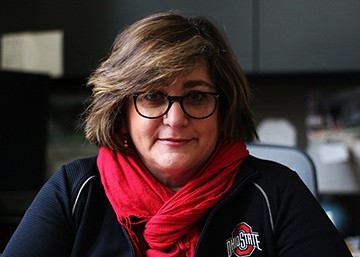
- Nicole Kraft, Associate Professor, Clinical, School of Communications, Sports and Society Initiative
Developing a Curriculum for Research Experience in Plant-Microbe Interactions:Assessment of Skills Desired by Employers
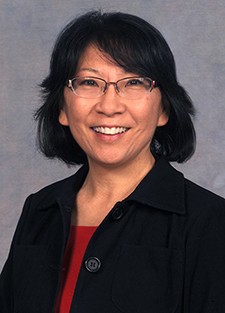
- Monica M. Lewandowski, Assistant Professor, Clinical Professional Practice, Plant Pathology
- Jonathan M. Jacobs, Assistant Professor, Plant Pathology
Can Peer Teaching Increase Students’ Interest in a Career in Financial Planning?
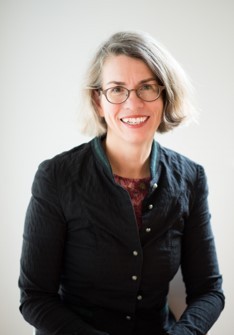
- Cäzilia Loibl, Certified Financial PlannerTM, Professor and State Extension Specialist, Department of Human Sciences, Consumer Sciences, College of Arts and Sciences, Ohio State University
- Martina Peng, Certified Financial Planner TM, Professor and Department Chair, Department of Accounting, Finance and Risk Management, Ross College of Business, Franklin University
- Jack Popovich, Professor of Finance, and Faculty Fellow for Student Financial Wellness, Columbus State Community College
Adapting Simulation for Online Social Work Education: Enhancing Students’ Clinical Skills and Decision-Making
Research indicates deficiencies in traditional approaches to teaching skill development in clinical education.Online learning potentially compounds these shortcomings; a critical concern given the rapid expansion of online education caused by COVID-19.Simulation-based learning (SBL)—an experiential learning technique—permits application of classroom knowledge and the opportunity to practice skills in structured scenarios,replicating ‘real world’ settingswithout risksto vulnerable clients. Emergent evidence indicatesSBL’s efficacyas a pedagogical approach in preparing social work students for the field. This discipline-based education research project will: (1) evaluate the efficacy of synchronous online simulation as a component of social work field education;(2) evaluate online simulation for scalability across the College of Social Work’s programs;(3) develop initial best practices for simulation development and implementation in online social work education; and (4) provide pilot data for external funding proposals.
- Lauren McInroy, Assistant Professor, College of Social Work
- Katie Klakos, Director of Field Education, College of Social Work
- Catherine Hechmer, Interprofessional Education and Practice Coordinator, College of Social Work
- Julie Holston, Opioid Workforce Expansion Program Manager, College of Social Work
- Ramona Denby-Brinson, Professor and Associate Dean of Academic Affairs, College of Social Work
Computational and Conceptual Thinking in Introductory Physics
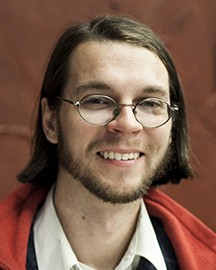
- Chris Orban, Assistant Professor, Physics
- Lin Ding, Associate Professor, College of Education and Human Ecology (external advisor)
Global Competence and Intercultural Learning in Virtual Space
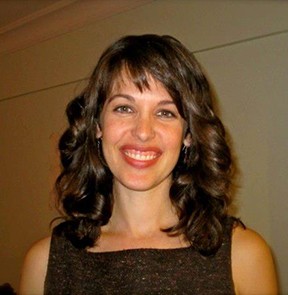
- Danielle Schoon, Senior Lecturer, Near Eastern Languages and Cultures
- Melinda McClimans, Assistant Director, Middle East Studies Center
- Xinquan Jiang, Senior Research Associate, Office of International Affairs
Evaluating the Effectiveness of an Evidence Based Dentistry Curriculum
The goal of this proposal is to develop research-based methods and assessments to measure the effectiveness of The College of Dentistry’s evidence-based dentistry (EBD) curriculum. Competency in EBD is a required by accreditation standards and is an essential skill for practitioners. However, EBD is a relatively new accreditation standard in dentistry and the effectiveness of the current curriculum is unknown. Two specific courses, one in the first year and one in the fourth year, will be evaluated using a pre-test and post-test.The post-test for the fourth-year course will be the EBD competency evaluation required for graduation. In addition, the validity and reliability of the assessments will be measured.
- Scott Schricker, Associate Professor, Division of Restorative and Prosthetic Dentistry, College of Dentistry
- Darryl T. Hamamoto, DDS, Associate Professor, Associate Dean for Academic Affairs, Division of Oral, Mzxillofacial Pathology and Radiology, College of Dentistry
2019-2020 Academic Year
Supporting Undergraduate Biology Students’ Academic Success: Is Metacognition Enough?
This study will examine the impacts of two different workshop interventions designed to improve students’ exam performance, study strategies, and academic beliefs. The study will take place in Biology 1113 -Biological Sciences: Energy Transfer and Development, a large undergraduate enrollment course that serves as one of two introductory biology courses required to enter the biology major. The study will bring together instructors, researchers, and practitioners from two Ohio State centers: the Center for Life Sciences Education (CLSE) and the Dennis Learning Center (DLC). The team will combine discipline-based and domain-general insights for supporting college students’ academic success.
- Lauren Hensley, Senior Associate Director, Dennis Learning Center
- David Sovic, Postdoctoral Researcher and Lecturer, CLSE
- Amy Kulesza, Academic Program Specialist and Biology Research Specialist, CLSE
- Judith Ridgway, Assistant Director-Educaitonal Research and Development, CLSE
- Christopher Wolters, Professor of Educational Psychology and Director, Dennis Learning Center/Department of Educational Studies
Developing a MATLAB Programming Concept Inventory: Assessment Tool for Use in First-Year Engineering Courses
Valid assessment tools are needed to properly determine the impact of educational strategies and determine areas for improvement in the curriculum or teaching. In the first-year engineering courses at The Ohio State University, computer programming is a major topic in the curriculum. Therefore there is a desire to have a valid assessment tool for computer programming. Currently, concept inventories exist that are programming language independent, however they have limitations for the type of computer programming taught to the first-year engineering students. Thus this research proposes developing and validating a new concept inventory that is appropriate for MATLAB programming. This concept inventory will be developed based on the existing language independent concept inventory since it has been shown to be valid. A validation study will be conducted to determine the validity of the new assessment tool. Once a valid assessment tool is developed this will have an impact on over 2200 students per year enrolled in the first-year engineering courses. This assessment can be incorporated into the curriculum and used by faculty and administrators to make informed decisions about the curriculum. The results from this research will be shared with the engineering education community at engineering education conferences and will be used as the basis for an NSF grant submission.
Krista Kecskemety, Assistant Professor of Practice, Department of Engineering Education
Developing intercultural competence for Italian language learners through integrated course design
This study is an attempt to enhance and make explicit what has been, up until now implicit in world language study. Intercultural learning modules have been embedded into each course in the Italian elementary language sequence (IT1101-1103). The goal of this study is to measure the efficacy of these modules in explicit learning of intercultural competence, which is defined as the capability to shift cultural perspectives and adapt behaviors across cultural differences. The Intercultural Development Inventory, or IDI, will be used to assess individual’s level of intercultural competence before taking 1101, at the end of 1101, at the end of 1102 and at the end of 1103, which will allow us to assess gains after each intervention as well as gains achieved after three semesters of language study.
- Janice Aski, Professor, French and Italian
- Cindy Xinquan Jiang, Senior Research Associate, Office of International Affairs
Implementing a Combined Physical-Virtual Lab for Enhancing Practical Understanding on Fundamentals in Mechanics of Materials
Motivated by advances in additive manufacturing, computational design and theoretical development in mechanics, this project is aimed at enhancing the fundamental understanding of principles and concepts in mechanics taught in MECHENG 2020 (Introduction to Mechanics of Materials) through creating a combined physical-virtual lab module. Student feedback and comments from previous SEI reports have pointed the need for such an offering. This project is also aimed at cultivating the excitement and appreciation of engineering students for their profession. The project will lead to four student outcomes: (a) being able to implement computational model for stress analysis, (b) being able to compare numerical results with experimental data, (c) being able to modify the achieved model for various scenarios, and (d) the ability to stimulate interests in pursuing careers in engineering. The assessment plan combines direct and indirect assessment of students to evaluate four student outcomes, including creating new homework and quiz problems, replacing the final exam with a final project, and developing a pre- and post-survey using an online questionnaire. The completion of this project will trigger further revision of the course and other collaboration on educational activities across departments at OSU.
Ruike Zhao, Assistant Professor, Mechanical and Aerospace Engineering
Exploring effects of coaching and feedback in learner-led synchronous online discussions to increase teaching presence: Learner perspectives
This exploratory study will explore the effect of coaching and feedback learner-led synchronous online discussion to increase teaching presence. A database of transcripts collected from ESWDE 5672 classes in which learners participated in online synchronous discussions are used as the data source. Data will be will be extracted and analyzed from discussion posts for evidence of teaching presence as described in the Community of Inquiry Model. The premise of this study is that learners over time having been coached in teaching presence will increase use of teaching presence indicators related to conducting a worthwhile discussion. A second premise of this study is that all participants in a discussion are responsible for teaching presence. In this study, teaching presence is defined as design, facilitation, and direction of cognitive and social processes for realizing personally meaningful and educationally worthwhile learning outcomes. The primary source of teaching presence in this study are the learners. The instructor role is to monitoring the process and intervene on a limited basis. This study will explore more deeply effects of coaching and feedback on teaching presence within synchronous discussions and identify which indicators of teaching presence are more or less resistant to coaching. Knowing which indicators of teaching presence are difficult for learners to implement will help instructors provide training and guidance on how to conduct worthwhile online synchronous small group discussions.
David Stein, Associate Professor, Educational Studies/College of Education and Human Ecology
ePortfolios for Online Global Competency and Intercultural Learning
This project will implement and assess online learning activities which join OSU students in conversation with peers at Turkish universities. We request funds to conduct pre- and post- intercultural development inventory (IDI) tests to measure the intercultural learning of participants, as well as background checks for our students’ conversation partners in Turkey. This project considers the need for higher education to leverage online cross-cultural environments for global education and intercultural competency outcomes for students. Certain elements in education abroad, such as time spent interacting with locals and cross-cultural collaboration, have been shown to maximize student learning (Paige, 2009; Berg, Connor-Linton, & Paige, 2009; Berg, 2009; Rhodes, Biscarra, Loberg, & Roller, 2012). This project implements similar interventions in online cross-cultural learning. We will use previously piloted ePortfolios based on best practices in global education and online cultural learning.
- Danielle Schoon, Lecturer, Near Eastern Languages and Cultures
- Melinda McClimans, Assistant Director, Middle East Studies Center
Introducing Metacognitive Learning Strategies into Organic Chemistry Courses
For many students who are planning on attending medical school, organic chemistry can be the course that prevents students from continuing down that path. During the 2018-2019 academic year, over 2,000 students enrolled in CHEM 2510, the first-semester organic chemistry course. Even though the Department of Chemistry & Biochemistry has introduced presentations on metacognition in the general chemistry sequence, students often arrive in organic chemistry with a lack of effective learning strategies. When students can no longer rely on prior chemistry knowledge and do not know how to learn, they become overwhelmed and cannot succeed. The purpose of this project is to reemphasize the importance of metacognition and provide students with a set of learning strategies to utilize inside and outside of the classroom. Workshops will be held at the start of the semester, before and after the first exam, where students will be introduced to these tactics. Qualitative and quantitative assessments will be employed to evaluate student perception of metacognition and their retention of metacognitive strategies before and after the course and appraise the most and least effective strategies that are introduced to the organic chemistry students. The results obtained from this project will be disseminated internally and externally through a series of presentations and assist in the development of a foundations of organic chemistry course.
Daniel A. Turner, Student Learning Specialist, Chemistry & Biochemistry
Broadening participation in science through inquiry
Despite the fact that psychology is a science, students in the discipline often have low levels of interest in science (Holmes & Beins, 2009). Inquiry-based instructional methods have been shown to improve students' science literacy as well as their attitudes toward science when implemented in STEM-based disciplines. The goal of this redesign is to incorporate inquiry teaching methods into a cognitive psychology classroom in an effort to increase student's science literacy and attitudes toward science. Students will work through the inquiry process through a guided discussion pedagogy. This project will utilize a pre-/post- test design to measure whether students’ understanding of the nature of science and their attitudes toward science increase as a result of this method of instruction. The broader goal of this project is to broaden interest in science. Public understanding of and interest in science is notably low, particularly among women and individuals in minoritized groups, in the United States (Funk & Goo, 2015). Importantly, the knowledge and attitude increases due to inquiry-based practices are especially large for these traditionally underserved students (e.g., Gormally et al., 2009). Because women and African American students are more likely to major in the social sciences compared to STEM-related fields (Aud et al., 2010; Georgetown, 2016), implementing inquiry in a psychology course may be especially beneficial for broadening interest in science.
Nikole D. Patson, Associate Professor, Marion Campus
Preservice Early Childhood Teachers’ Knowledge and Preparation to Support Language
Language is fundamental to teaching and learning, writ large, and especially for early literacy learning. To date, however, language has not typically been a major focus of preservice teacher preparation programs, and the extent of teachers’ knowledge and preparation to support language remains unclear. In this mixed-methods project, we will develop a measure of early childhood teachers’ knowledge of language that has adequate psychometrics and can be used widely in continued research. We will also document the current preparation and knowledge levels of preservice teachers enrolled in OSU BSEd and MEd early childhood licensure programs. We will draw from professional standards and scholarly texts to generate content knowledge items concerning (1) general language and language development, (2) narrative, (3) vocabulary, (4) grammar/syntax/morphology, (5) language development for multi-language learners, and (6) contextual factors that affect language development. These items will be reviewed by expert consultants and tested via cognitive interviews. After revision, we will administer the finalized items, along with background/preparation items, as a survey to OSU preservice early childhood teachers. We will analyze item-level data to determine internal consistency, dimensionality, item difficulties, and reliability of the measure. We will also address a priori hypotheses to document initial validity. Results will inform revisions to our preservice coursework and contribute more broadly to discipline-based educational research by providing a reliable and valid measure of knowledge of language that can be used in future research projects.
- Shayne B. Piasta, Associate Professor, Teaching and Learning
- Michiko Hikida, Assistant Professor, Teaching and Learning
Teaching the Softer Side of Public and Nonprofit Management Online: Testing the Effectiveness of an Approach using Online Deliberative Democratic Forums
In order to develop their capacity to effectively manage and lead people in public and nonprofit organizations, management students need the opportunity to practice essential soft skills such as active listening, emotional intelligence, and group facilitation. My students in PUBAFRS 6060: Managerial Leadership in Public and Nonprofit Organizations have the opportunity to practice these soft skills through a case-based facilitation project. Designing an assignment that provides such an active learning opportunity for students enrolled in the online version of the course presents another level of challenge entirely. This project aims to implement and test the effectiveness of an innovative approach to fostering the development of soft management skills by having students facilitate online deliberative democratic forums. Deliberative democratic forums bring together small groups of citizens to thoughtfully discuss contentious issues like police-community relations and immigration. Due to the work of OSU faculty member Michael Neblo, OSU has a unique opportunity to pioneer the use of online forums to foster soft skill development in courses focused on public and nonprofit management, public participation, etc.
Megan LePere-Schloop, Assistant Professor, John Glenn College of Public Affairs
Improving Essential Skills Related to Solution Stoichiometry and Titrations in General and Analytical Chemistry
Solution stoichiometry and titrations are important topics in introductory general chemistry and upper-level analytical chemistry courses. These topics can be very challenging to students because they require a great deal of fundamental chemistry knowledge, mathematical skills, and fluency with multiple representations. When solving these complex problems students frequently employ shortcuts, such as a memorized formula for diluting solutions. The primary goal of this project is to use a computer-based Essential Skills Program (ESP) to improve student understanding and lead them to employ correct problem solving strategies to successfully answer questions on these topics. In addition to investigating student use of the ESP program, pre- and post-tests, in-class exam results, and interviews will be employed to quantitatively and qualitatively examine student knowledge construction and problem solving in this area. This research aims to benefit students within the chemistry program and, more broadly, to determine if the ESP approach can be used to address student performance on complex problems like these. Findings will be of interest to the scientific education community and will be disseminated through presentations and papers.
- Ted Clark, Associate Associated Professor, Chemistry and Biochemistry
- Nicole Karn, Assistant Associated Professor/Instructional Technology Specialist, Chemistry and Biochemistry
2018-19 Academic Year
UITL awarded nine Research and Implementation Grants for the 2018-19 academic year to advance evidence-based instructional practices at The Ohio State University. The awards went to faculty representing departments ranging from Theater to Chemistry, as well as the College of Nursing.
Implementing StudentSPEACS in the RN-to-BSN and Graduate Entry Nursing Programs
The goal of this mixed-methods, Discipline-Based Education Research is to implement StudentSPEACS (Study of Patient-Nurse Effectiveness with Assisted Communication Strategies) to 158 students in the online RN-to-BSN program and 265 students in the Graduate Entry Program at the OSU-CON. The ultimate goal is to disseminate this widely to other RN-to-BSN and Graduate Entry nursing programs nationwide. The aims of this study are to: 1. Develop a case-based activity package for use by students to improve nurse’s communication skills with communication-impaired patients for wide distribution to students in other RN-to-BSN and Graduate-Entry nursing programs. 2. Increase student skills in communication assessment and use of evidence-based clinical strategies targeted to care of patients with communication impairments for students in the RN-to-BSN and Graduate Entry nursing programs. 3. Test the impact of the communication training for students and inclusion of clinical activities on student self-ratings of their communication ability, comfort with communication impaired patients and opportunities to use SPEACS communication tools and techniques in clinical practice.
- Judith Ann Tate, Assistant Professor, Center of Excellence in Critical and Complex Care, College of Nursing
- Wendy Bowles, Assistant Professor of Clinical Nursing and Assistant Dean for Baccalaureate Programs, College of Nursing
- Mary Beth Happ, Associate Dean for Research and Innovation and Distinguished Professor of Critical Care Research, Center of Excellence in Critical and Complex Care, College of Nursing
An Investigation of the Internal Motivating Factors of Materials Science and Engineering Students Related to Computational Modeling
This project will build on a body of knowledge related to how efficacy and value vary among students in different majors and how these internal factors can influence performance. It also seeks to better understand similarities and differences between the population of Materials Science and Engineering (MSE) undergraduates and those from more computationally-driven programs such as Computer Systems Engineering (CSE), for which the bulk of current research on engineering students learning programming has been done. This project hypothesizes that the motivation and self-efficacy will be significantly different for MSE students learning computational modeling. It is also expected that the perceived value of these skills will be different for MSE students.
- Alison Polasik, Assistant Professor of Practice, Materials Science and Engineering
Understanding and Supporting Instructor Use of the Flipped Learning Model in an Integrated Course Sequence
This prospective, interventional study will evaluate instructors teaching within the Integrated Pharmacotherapy course sequence prior to and following interventions aimed at increasing the appropriate use of Flipped Learning pedagogy. The intervention consists of several components all aimed at supporting faculty use of the pedagogy: (1) expert-led faculty development workshop on using FL pedagogy within an integrated pharmacy course, (2) education on availability of resources to support faculty in using these methods, (3) new technologies to facilitate in-classroom, collaborative learning and (4) support from instructional designers. All instructors teaching with the Integrated Pharmacotherapy course sequence in academic year 2018-19 will be included in this study.
- Alexa Sevin Valentino, Assistant Professor of Clinical Pharmacy, Pharmacy Practice and Science
- Brianne L. Porter, Assistant Professor, Pharmacy Practice
- Ruth E. Emptage, Clinical Assistant Professor, Pharmacy Practice and Science
- Katherine A. Kelley, Associate Dean Assessment and Strategic Initiatives, Professor, Clinical Practice
- Justin Habash, Director, Office of Educational Innovation and Scholarship
- Christina Archer, Senior Instructional Designer, OEIS
- Katie O’Keefe, Instructional Designer, OEIS
- Bella H. Mehta, Professor of Clinical Pharmacy, Pharmacy Practice and Science
Integrating Metacognitive Learning Strategies in General Chemistry: Teaching for Student Success
The purpose of this project is to examine the effectiveness of faculty instruction that integrates metacognitive learning strategies in General Chemistry on student success, defined as achievement and retention in their STEM majors. Involving collaborating interdisciplinary faculty members passionate about college student success, the rationale for this study is to collect empirical evidence in CHEM that demonstrates the effectiveness of teaching college students to use metacognitive learning strategies (MLS) on student success outcomes. The specific objectives are as follows: 1. Document how faculty can implement MLS instruction within the context of a STEM discipline course. 2. Assess students’ participation and involvement in MLS opportunities, as well as their self-reported motivation, use of said strategies, and perceptions of the course instruction. 3. Measure how students’ involvement in MLS, motivation, strategy use, and perceptions of the course are related to student success, defined as course engagement (effort, persistence, choice, less procrastination), achievement, intentions to persist in STEM, and subsequent retention in their STEM majors.
- Matthew W. Stolzfus, Senior Lecturer, Chemistry and Biochemstry
- Shirley Yu, Associate Professor, Educational Studies
Professional Writing Pedagogies for Neurodiverse Writers
This project will explore how The Ohio State University’s Professional and Technical Writing Program might better attune to the needs of neurodiverse student writers. How might we design professional writing curricula in a way that interrogates heretofore unmarked, normative standards for professional writers? How can instructors improve peer review, collaborative writing, and professionalization skills in classrooms in ways that are attendant to a wide range of embodied experiences? Through a better understanding of the problem, pedagogical intervention will be designed in phase two of the project.
- Christa Teston, Associate Professor, English
Math Skills Diagnostic Test and Online Practice for Introductory Mechanics
This project’s goal is to provide students taking Physics 1200 (Algebra-based introduction to classical physics) with a basic skills math practice and tutorial in order to improve their chances of being successful in this course. The project will evaluate the impact the tutorial has on student success, determined by final grade, as well as the influence of other factors, such as instructor, major, school year, participation in other aspects of the class, among others. This project will contribute to student learning at the course level by building a math diagnostic test that is a reliable predictor of student success. Students will then know which skills they need to practice or review, and will have access to a tool designed specifically for that. This will improve their math competence, and increase their likelihood of success in the course. The math diagnostic test and tutorial will continue to be used and will continue to positively impact students after the project ends.
- Beatriz Eugenia Burrola Gabilondo, Lecturer, Physic
Implementation of Mock Trial within Undergraduate Sport Law
The investigators will implement mock trial within the undergraduate sport law course and assess student achievement of targeted learning goals (i.e., develop an understanding of the U.S. legal system, assess major risk management issues in the sport industry, develop written and oral communication skills, contribute to a high-performing work group), the logistics of the mock trial project, and the affective experience of student participants. The project will integrate multiple forms of formative and summative assessment, including assessments of in-class exercises and practice sessions, a pilot-tested pre/post survey, course examinations, evaluation per mock trial rubric, student reflections, and focus group interviews. These methods will help sustain the project by improving future mock trial implementation to enhance student learning and retention.
- Leeann M. Lower, Assistant Professor, Human Sciences/Sports Management;
- James O. Evans, Doctoral Student, Human Sciences/Sports Management
Best Practices in Applied Theatre Pedagogy
This project supports the Pedagogy of Civic Practice and Public Performance Conference, which will be hosted November 9-10, 2018, at the Department of Theatre in the Drake Performance and Event Center at The Ohio State University. The conference will bring together local and regional stakeholders from the arts, humanities, social work, public policy, medicine, nursing, and education who incorporate performance into civic practice and engagement. We aim to gather in one space at one time to encounter each other’s work and build relationships. At the same time, we will draw upon our collective expertise so that we can together develop an interdisciplinary graduate-level Specialization or Certificate in Civic Practice and Public Performance, open to graduate students at OSU and professionals around the nation, that will build upon and support cutting-edge university-based engagement initiatives.
Following the conference, Schlueter will lead a team of graduate students as they synthesize what emerged from the conference, dig in to curriculum creation, and craft a complete proposal for the new program across Spring 2019. This portion of the project will extend the applied theatre ethos into the graduate classroom.
- Jennifer Schlueter, Associate Professor, Department of Theatre and Faculty Fellow, Curriculum, Graduate School
Testing Near-Peer Teaching as an Approach to Learn About the Financial Risks of Student Loan Borrowing
The proposed project builds on established risk communication research to evaluate and improve a high-impact, “paying-for-college” focused learning element for an introductory course in the Consumer and Family Financial Services major. The outcomes of this project will provide a significant contribution to classroom practice for teaching personal finance topics. It will contribute much needed, novel insights into the effectiveness of a financial literacy intervention for college students’ financial decision making, from a social sciences perspective.
- Cäzilia Loibl, Associate Professor and State Extension Specialist, Department of Human Sciences
